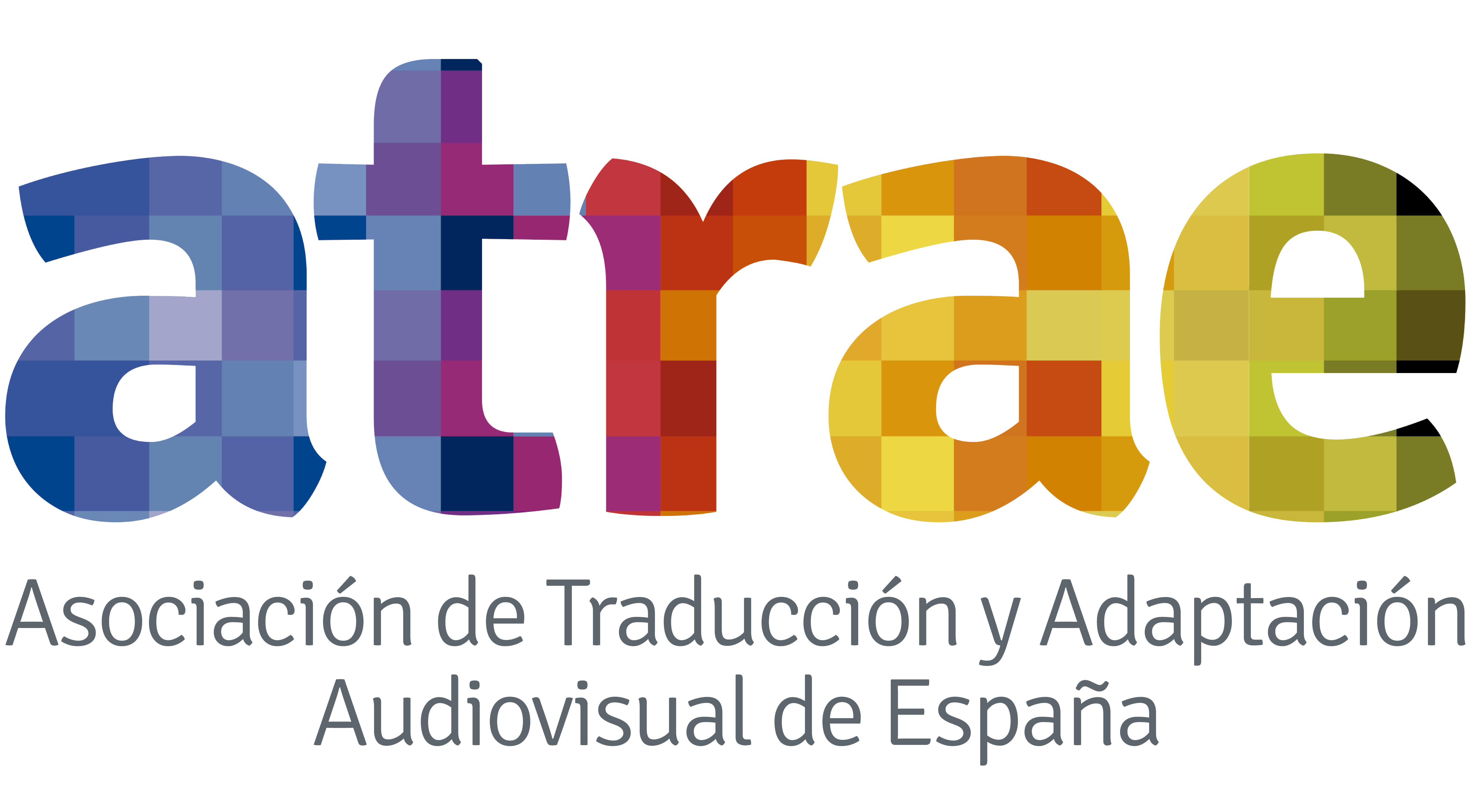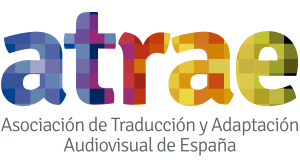OPEN LETTER TO IYUNO ON BEHALF OF ATRAE
For the attention of Iyuno•SDI Group,
We, the Spanish Organization of Audiovisual Translators and Adapters (ATRAE) are writing this open letter in response to your recently posted White Paper, “A Simplified Look at the Subtitling Production Process.” Though there is much that could be said on the whole piece, we shall focus on the section concerning the industry perspective, since we find that this paper is indeed so simplified that it fails to include the viewpoint of an essential agent of the subtitling production process: the actual subtitlers.
First of all, we need to address the subject of the alleged “shortage of translators” from the perspective of an organization that, for Spanish alone, has over 570 professionals ready to work. While it is true that “there is more content being produced than ever before,” there are also more university-trained audiovisual translators than ever before. In Spain, there are about twenty five graduate degrees on audiovisual translation. It is true, however, that certain language combinations are more difficult to come across than others, however that does not endorse a general shortage of translators and the subsequent usage of machine translation in order to make up for it.
It is also stated that “there have been some recent reports in the media that the reason for the shortage is low pay.” On this matter, we would like to make clear that the media consulted with us, the professional translators, on our perspective. Including some of Iyuno•SDI former linguists, who stopped working with the company due to the appalling worsening of our conditions. Hence, we do believe you might face a shortage in professional translators willing to accept rates, deadlines and overall working conditions that do not allow us to opt to a decent livelihood.
You go on to say that “Certainly, every person that works for a living deserves the right to strive for better compensation, and the market will always settle at a market rate following the supply and demand principles that drive all commercial markets.” We are not sure if you are truly aware of such principles. According to the supply and demand premise, when the supply is lower than the demand, the cost of the goods or services increases significantly. We have been seeing this phenomenon with the tragic recent international events, where for instance the price of sunflower seed oil has gone through the roof. Therefore, if there is a shortage of translators (i.e., a lack of supply), the syllogism that follows is that our rates and benefits should be way higher now. However, in the best of cases, rates have not been raised in ten years and, in the worst, they have been cut to a third of what they used to be. We are certain you can appreciate how your logic does not hold together. Moreover, the market is not always an efficient mechanism to assess and establish fair prices, above all if we bear in mind that Iyuno•SDI has a disproportionate market position that allows for it to set prices unilaterally.
One of the claims that really struck a chord with us is the following one: “We have never seen a subtitler do a lesser job because they want more pay.” How do you explain, then, the fact that your company has been blacklisted in certain European countries, and that from all of Netflix’s vendors, Iyuno•SDI is the one with the highest percentage of redelivery? Meaning that, of all the platform’s suppliers, Iyuno•SDI is the one that complies the least with Netflix’s quality standards. We would also like to clarify something about the lesser quality of audiovisual translators’ jobs due to low pay. It is not a matter of us translators being vindictive and not professional. It is a matter of pure logic.
Subtitlers get paid per minute of video. The lower the rate your company imposes, the more minutes of video they have to translate in less time in order to earn a livable wage. This entails an unavoidable deterioration of the end-product quality since translation decisions need to be rushed, and allotting time for a revision and/or viewing of the finished translation is pretty much utopic. Iyuno•SDI simply cannot affirm in good faith that a fair compensation has nothing to do with the amount of time subtitlers can devote to a TV show or film. Good working conditions are undeniably paramount to good quality subtitling, unless you are suggesting your linguists should work overtime just to make ends meet —which goes against labor rights. And even if that were the case, which we should hope it is not, quality would suffer because as you admit later on in this white paper, audiovisual translation is a highly creative process, and creative juices do not flow on overworked, stressed-out, exhausted brains.
Is any of this fixable by using what you call “tools” when in fact it is machine translation? Absolutely not. Again, as you admitted in this white paper, audiovisual translation is a highly creative process. Thus, it is not something that can be line-produced. Surely, you tried to cover all the bases by saying: “What we do see and want is to improve the efficiency of their workday by using tools and giving subtitlers more time to spend on creative tasks and less on the mundane.” First of all, we do wonder whether, before making that claim, your company actually asked a representative sample of professional subtitlers. As far as ATRAE is concerned (and, we insist, we represent almost 600 professionals from the Spanish audiovisual translators’ community alone), machine translation does absolutely not improve the efficiency of our workday.
You proclaim, nevertheless, that having a machine taking care of the “mundane” task of translating may bless us with more time to pamper the text. First of all, we must disagree on the adjective used, since there is nothing mundane about translating an audiovisual product, which is embedded in a culture and aimed to transmit very human thoughts and feelings. The texts at stake in subtitling are creative and oral at their core, not just the surface. Never forget that professional audiovisual translators account for innuendos, metaphors, puns, double-entendres, culture references, ironies, intertextuality, slang, idioms… All while also factoring in the restrictions of translating for subtitling (that is, reading speed, character limitation, segmentation, etc.) Not having full liberty to translate from scratch, as well as having our deadlines pulled tighter and tighter, results in a flattened text, with no flavor, and a lot of meaning lost in post-editing, that would absolutely not be lost in translation. Not a product the audience would enjoy.
Furthermore, us subtitlers also convey the characters’ idiosyncrasies, their idiolects, we show their personalities in our language the same way their creators did in their original language, and that is not only not made easier, but rather obstructed by machine translation. In this sense, from ATRAE we are also very curious as to how would scriptwriters and directors react if they knew how the work of art they so carefully created for months or even years, thinking of the exact word to convey each characters’ nuances and every plot turn, are reduced to a single to three-day post-editing process at best.
In addition, we all have seen examples in the media of flagrant mistakes that have escaped your quality control. These include very basic errors such as grammatical inconsistencies, mistranslations, or even words left untranslated, as has been proven by the numerous complaints about subtitle quality emanated from post-editing practices. So, it is not just us translators taking the automatically generated “translation” and making it “pretty,” we also have to make it readable, correct. On this point, your hypothesis that these “tools” are helpful to us or to our efficiency is totally debunked, for most of the time post-editing is simply a euphemism for “full re-translation for a lower rate and/or a worse deadline.” All in all, it therefore seems that Iyuno•SDI is more worried for their shareholders than for the quality of their translations, advocating for the uberization of our craft with the sole purpose of increasing your margins. Please find as an annex a few examples of the above-mentioned complaints to make our case.
In conclusion, with all due respect, this white paper is not a piece of research trying to offer an objective perspective of the market; it is an exercise of PR oriented to cover a series of clear bad practices by Iyuno•SDI. You might want to reconsider and un-simplify your look in our profession. Maybe, that way, you would realize professional subtitlers were there all along, only accepting jobs from better clients.
Sincerely,
ATRAE.
ANNEX
These are press reactions to the Spanish subtitling of “Squid Game.” We are currently in the process of compiling screenshots from many more shows:
- ‘The Squid Game’ puts Spanish translators on a war footing against Netflix: «Bread (hard and dry) for today, hunger for tomorrow» – The News 24
- ‘El juego del calamar’ pone en pie de guerra a los traductores españoles contra Netflix: «Pan (duro y reseco) para hoy, hambre para mañana» – Radio HITS
- ‘El juego del calamar’ pone en pie de guerra a los traductores españoles contra Netflix: «Pan (duro y reseco) para hoy, hambre para mañana» – HOY CORDOBA
- Los traductores españoles critican a Netflix por los subtítulos de ‘El juego del Calamar’ – Radio HITS
- Los traductores españoles critican a Netflix por los subtítulos de ‘El juego del Calamar’ – Radio ONE+ 99 7
- The Association Of Spanish Translators Charges Against Netflix For The Subtitles Of The Squid Game – Bullfrag
- Los traductores contra Netflix por la posedición de ‘El juego del calamar’: «No entendemos cómo se puede dejar en manos de un algoritmo» – NTe Radio City – Radio Catamarca
- La asociación de traductores españoles carga contra Netflix por los subtítulos de El juego del calamar – espejopublico.net
- Comunicado sobre la posedición, nota de prensa de ATRAE – MagaZinema
- Spanish translators protest the «mediocre» subtitles of ‘The squid game’, made by a machine – Paudal
- Posedición y traducción audiovisual – Zesauro Traducciones
- Los traductores españoles protestan por los “mediocres” subtítulos de ‘El juego del calamar’, hechos por una máquina | Televisión – Información Center
- ATRAE Denuncia Uso de MTPE em Squid Game – ATAV
- Spanish translators charge against Netflix for post-editing in the subtitles of The Squid Game – PlanetSmarts
- Polémica con ‘El juego del calamar’: Los traductores claman contra Netflix por lo que se ve en sus subtítulos – El Televisero
- España se está reconfigurando como un hub audiovisual, creando oportunidades para los medios locales – Revista El Color del Dinero
- Sous-titres de Squid Game : retour sur la polémique – MasterTSM@Lille
- LA POSEDICIÓN EN EL JUEGO DEL CALAMAR – Nartran Translations
- Los errores de traducción en Netflix son un reflejo de las malas condiciones de sus profesionales y el abuso de la traducción automática – Celulares, smartphones y tablets
- Los errores de traducción en Netflix son un reflejo de las malas condiciones de sus profesionales y el abuso de la traducción automática – Jahnissi
- España se está reconfigurando como un centro audiovisual, creando oportunidades para los segmentos de medios – Gente de la Safor
- Precariedad en una profesión que genera fortunas – Patricia Posadas, servicios de traducción
- Indignación de traductores españoles por la traducción de «El juego del calamar» (El País, Octubre 2021) – TRADUCCIONES LOW COST





2 thoughts on “Carta abierta de ATRAE a Iyuno”
Comments are closed.